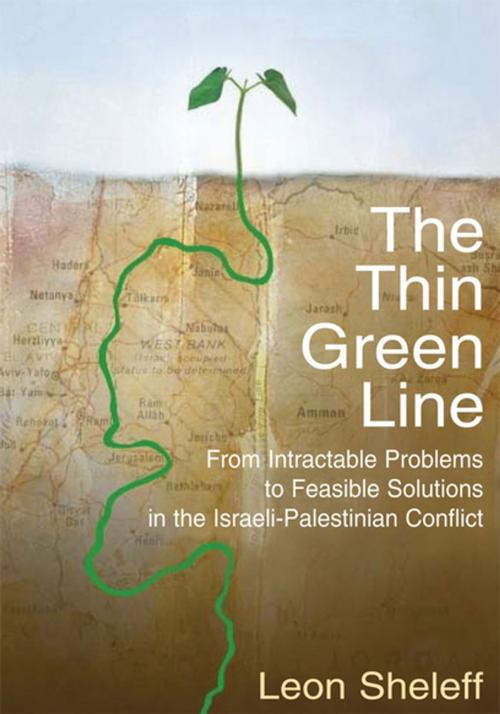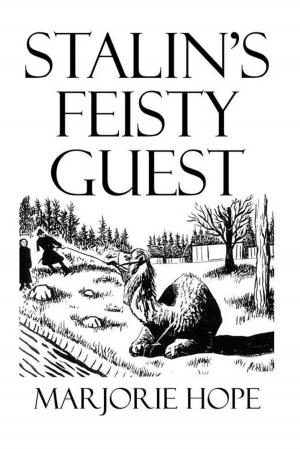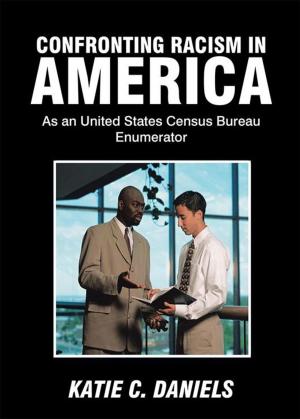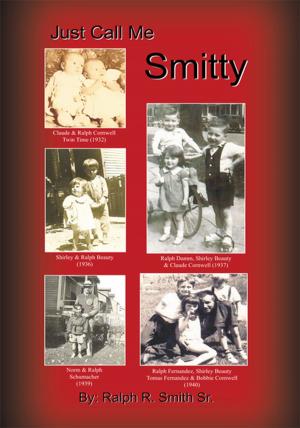The Thin Green Line
From Intractable Problems to Feasible Solutions in the Israeli-Palestinian Conflict
Nonfiction, Social & Cultural Studies, Political Science, International, International Relations, Politics, History & Theory| Author: | Leon Sheleff | ISBN: | 9781462817313 |
| Publisher: | Xlibris US | Publication: | April 27, 2005 |
| Imprint: | Xlibris US | Language: | English |
| Author: | Leon Sheleff |
| ISBN: | 9781462817313 |
| Publisher: | Xlibris US |
| Publication: | April 27, 2005 |
| Imprint: | Xlibris US |
| Language: | English |
The Thin Green Line: From Intractable Problems to Feasible Solutions in the Israeli- Palestinian Conflict
by Leon S. Sheleff
This book is an attempt to offer an understanding of the Israeli-Palestinian conflict from an Israeli perspective, one that is critical of official Israeli policy and conventional Israeli thinking. It presents a more comprehensive analysis of the key issues than that contained in most standard accounts, as well as a more optimistic approach than that emanating from most governmental statements and a more comprehensive picture than that reflected in President George W. Bushs road-map.
In fact, the book opens with the suggestion that a road-map is too limited and one-dimensional to handle the many facets of the issue, and suggests the need for an atlas, conjuring up the idea of a fuller confrontation with the most controversial issues, instead of the continual efforts to avoid an honest assessment of these issues. The intractable problems, discussed in separate chapters, are:
- The status of Jerusalem;
- The fate of the Palestinian refugees;
- The question of Jewish settlement in the occupied territories.
It is suggested that the basic issues are often obfuscated by inaccurate descriptions and definitions. For example, the sentimental attachment of the Jewish people to Jerusalem can be easily accommodated within a divided city, since the boundaries of the city have been arbitrarily drawn, covering an immense geographical area with no meaningful overlap with biblical sites. The political machinations and intricacies are described in detail, and an explanation is given as to how Jerusalem can be fairly divided between the two separate states of Israel and Palestine.
From the Israeli point of view, the major problem is neither the division of Jerusalem nor the Palestinian claim for a right of return, but the fate of the hundreds of thousands of Israelis (constituting 5-10% of the Jewish population of Israel) who live beyond the pre-1967 border known as the Green Line.
The author claims that Israels present predicament is a direct result of the reckless and arrogant manner in which Jewish settlements were set up on the West Bank and in Gaza, creating friction with the local population, deep divisions within the Israeli social and political system, and a serious impediment to any peace process. The settlements, the author argues, are a consequence of short-sighted political planning, linked to ideological and religious zeal, which, unfortunately, were sanctioned by Israels Supreme Court, despite the reasoned claims that the settlement policy was in violation of the Geneva Convention.
The book suggests new, humane solutions for both the Jewish settlers and the Palestinian refugees.
* * *
Going beyond the problematics of the conflict, the book offers original approaches to the future interaction between Israel and Palestine. The many diverse contacts between the two nations, living in a confined space formally delimited by the British Mandate, provides a basis for a confederative structure. Such a framework would be a loose one in its initial stages, so as to allow for the gradual building of trust and confidence.
A long list of problems, from environmental damage to water shortage, requires the maximum amount of cooperation between both countries. Confederation also poses the possibility of a novel solution for Jerusalem, which would be divided and then re-united. East Jerusalem would be the capital of Palestine, to be known by its Arab name, El Kuds, while West Jerusalem would be the capital of Israel, to be known by its Hebrew name, Yerushalayim. Both halves together would be the capital of the confederation and calle
The Thin Green Line: From Intractable Problems to Feasible Solutions in the Israeli- Palestinian Conflict
by Leon S. Sheleff
This book is an attempt to offer an understanding of the Israeli-Palestinian conflict from an Israeli perspective, one that is critical of official Israeli policy and conventional Israeli thinking. It presents a more comprehensive analysis of the key issues than that contained in most standard accounts, as well as a more optimistic approach than that emanating from most governmental statements and a more comprehensive picture than that reflected in President George W. Bushs road-map.
In fact, the book opens with the suggestion that a road-map is too limited and one-dimensional to handle the many facets of the issue, and suggests the need for an atlas, conjuring up the idea of a fuller confrontation with the most controversial issues, instead of the continual efforts to avoid an honest assessment of these issues. The intractable problems, discussed in separate chapters, are:
- The status of Jerusalem;
- The fate of the Palestinian refugees;
- The question of Jewish settlement in the occupied territories.
It is suggested that the basic issues are often obfuscated by inaccurate descriptions and definitions. For example, the sentimental attachment of the Jewish people to Jerusalem can be easily accommodated within a divided city, since the boundaries of the city have been arbitrarily drawn, covering an immense geographical area with no meaningful overlap with biblical sites. The political machinations and intricacies are described in detail, and an explanation is given as to how Jerusalem can be fairly divided between the two separate states of Israel and Palestine.
From the Israeli point of view, the major problem is neither the division of Jerusalem nor the Palestinian claim for a right of return, but the fate of the hundreds of thousands of Israelis (constituting 5-10% of the Jewish population of Israel) who live beyond the pre-1967 border known as the Green Line.
The author claims that Israels present predicament is a direct result of the reckless and arrogant manner in which Jewish settlements were set up on the West Bank and in Gaza, creating friction with the local population, deep divisions within the Israeli social and political system, and a serious impediment to any peace process. The settlements, the author argues, are a consequence of short-sighted political planning, linked to ideological and religious zeal, which, unfortunately, were sanctioned by Israels Supreme Court, despite the reasoned claims that the settlement policy was in violation of the Geneva Convention.
The book suggests new, humane solutions for both the Jewish settlers and the Palestinian refugees.
* * *
Going beyond the problematics of the conflict, the book offers original approaches to the future interaction between Israel and Palestine. The many diverse contacts between the two nations, living in a confined space formally delimited by the British Mandate, provides a basis for a confederative structure. Such a framework would be a loose one in its initial stages, so as to allow for the gradual building of trust and confidence.
A long list of problems, from environmental damage to water shortage, requires the maximum amount of cooperation between both countries. Confederation also poses the possibility of a novel solution for Jerusalem, which would be divided and then re-united. East Jerusalem would be the capital of Palestine, to be known by its Arab name, El Kuds, while West Jerusalem would be the capital of Israel, to be known by its Hebrew name, Yerushalayim. Both halves together would be the capital of the confederation and calle















